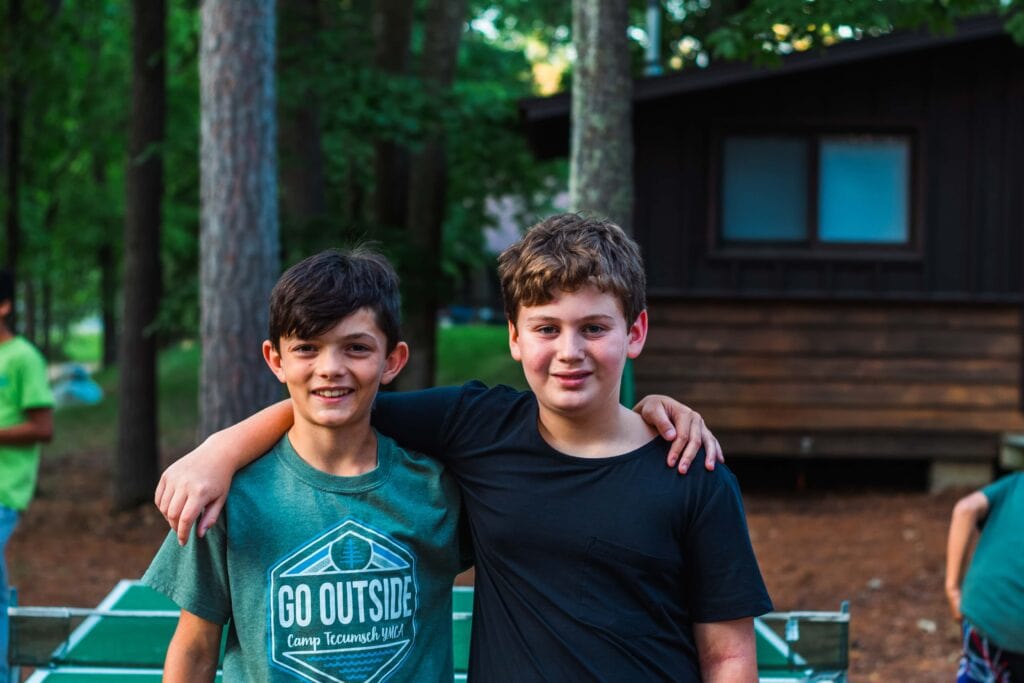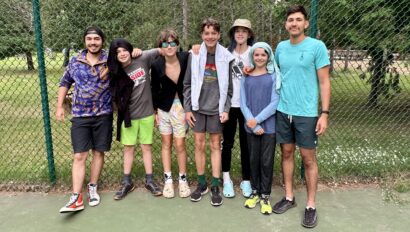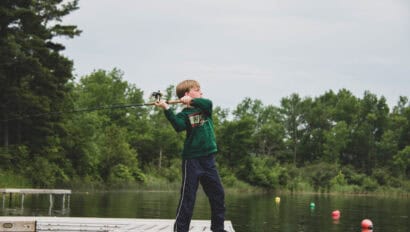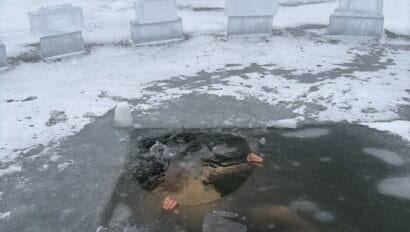Parents choose summer camps for their children because camps are both an accelerant for development and an oasis from the pressures of modern life. In terms of what camps offer, the time outside, progressive challenges, and positive culture encourage mental wellness, resilience, and character growth. On the other hand, phones, parents, and cliques are absent, instilling in campers calm, independence, and friendships. As a summer camp for boys, Camp Chippewa provides another component of simplicity and ease to its campers in its same-sex community.

A low-pressure, high-compassion community
Camp Chippewa has been a summer camp for boys since 1935, and as a camper named Sam aptly described, maintaining the boys-only environment is something the campers love. “It is just so much easier to get along at camp without any girls around. You can worry a lot less, and you can care less about what other people think about you.” Among the many other positive aspects of camp, a break from girls – namely the social competition and posturing among boys to be viewed as attractive – takes a lot of pressure off of campers. The result is instantaneously felt as another layer of social pressure peeled away. Campers wear pajamas to breakfast, pull off t-shirts without thought to hop into the lake, and show appreciation and affection towards each other as they form friendships. Gone is the background stress of cliques and dating from the school year, replaced by a close-knit environment simultaneously celebrating individuality.
As an all-boys camp, Chippewa is a low-stakes place for the boys to learn skills in building relationships and resolving conflicts. Those skills have a broader impact returning to school, home, and life outside of camp. As social psychologist Richard Reeces says, “It could even be that all-male environments enable boys and men to develop the relational skills they will need to flourish in a co-ed world, and in more equal marriages. The provision of at least some single-sex spaces might in fact be supportive of a more gender-egalitarian world.”
Sure, competition still exists at camp. There are tennis matches, games of Capture the Flag, and even the Honor Cabin award for cleanest cabin. But most competition exists against one’s self as the boys strive to pass ranks by climbing higher on the tower or shooting at a greater distance in archery. The foundation of keeping competition healthy and compassionate is the Chippewa Way philosophy. Campers are taught to take care of themselves, others, and the places they share. With less pressure and greater ownership within their lives, being better toward others is the law of the land. Boys can be who they want to be, choose the activities they like best, and befriend boys from all different backgrounds. As 10-year-old Julian said last summer, “At Camp Chippewa, everybody is cool, and nobody is cool.” Julian’s words are a more poetic way of stating that campers can feel wholly accepted into a community, and in turn see people exactly as they are. Being cool while not having to try and be cool? That is a special thing.
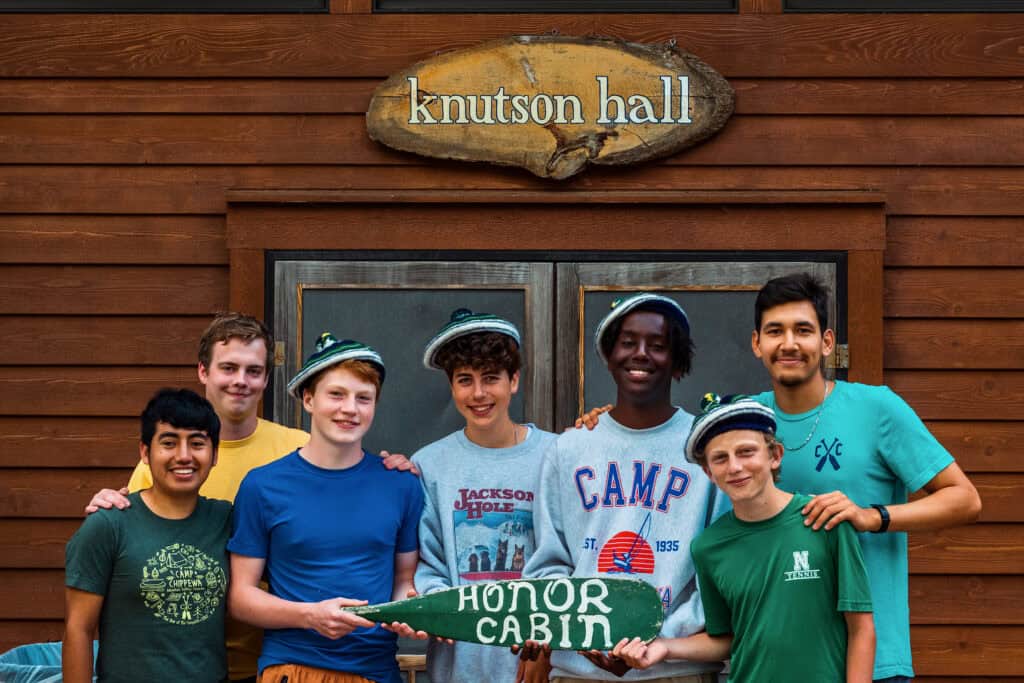
A needed space for healthy male friendships
Amidst a nationally-recognized epidemic of loneliness, making friends is more than a benefit of camp, it is a crucial component of health. With loneliness more affecting adult men, and Richard Reeves opining that “as a general rule, male friendship likely requires more institutional support,” it is the responsibility of every summer camp for boys to be intentional about programming friendship – the same way they program lunch, waterskiing, and camping – into campers’ experiences.
At Camp Chippewa, counselors set the tone for forming friendships. They already know each boy’s name as they arrive at camp, especially if it is their first time there. Helping them take their luggage into their cabin and make their bed for the first time, staff show all the campers that being caring is part of being at Camp. As former camper Dominic said when he was 13, “It’s nice to live in a place where everybody knows your name.”
Shared responsibilities and goals ensure boys will spend time working together, practicing teamwork, and navigating conflicts. Making sure the cabin is clean for Inspection gives the boys daily practice at living in community. Hearing laughter from the cabin as boys sweep the floors and take out the trash is a sign of relationship-building at work. Last summer, I was especially proud to see a counselor slowly turn a boy frustrated at his cabin-mate for being slower at making his bed into a willing helper and friend over two weeks.
Perhaps the most important component of friendship-building at camp is the abundance of shoulder-to-shoulder time. For boys and men, spending time alongside each other in a shared activity is optimal for building trust, handling emotions, and forming friendships. Conversation and all its laughter, stories, and silences flourish as boys cast their lines off of Buck Lake dock, catch a breeze in a sailboat, or walk through the woods together. Space is made for shoulder-to-shoulder time throughout the day, every day. The murmurings and laughter of campers exist as a calming soundtrack at Camp, constant evidence of friendships being formed.

Camp is for girls too!
Many families who send their boys to Camp Chippewa also send their girls to Camp Kamaji. Kamaji shares many values with Chippewa, and enjoys the same serene, pine-covered confines as Chippewa, albeit three lakes farther down the Mississippi River. Kamaji even shares the same dates for its sessions as Chippewa, making it easy for families to coordinate travel plans for their children. The American Camp Association has a great tool for finding summer camp programs that fit each family’s goals.
And what about fostering closer relationships between siblings during the summer? Well, renewed appreciation of family, increased tolerance, and greater personal independence are all direct results of a summer at camp. Does summer camp make someone a better family member? Without a doubt.
